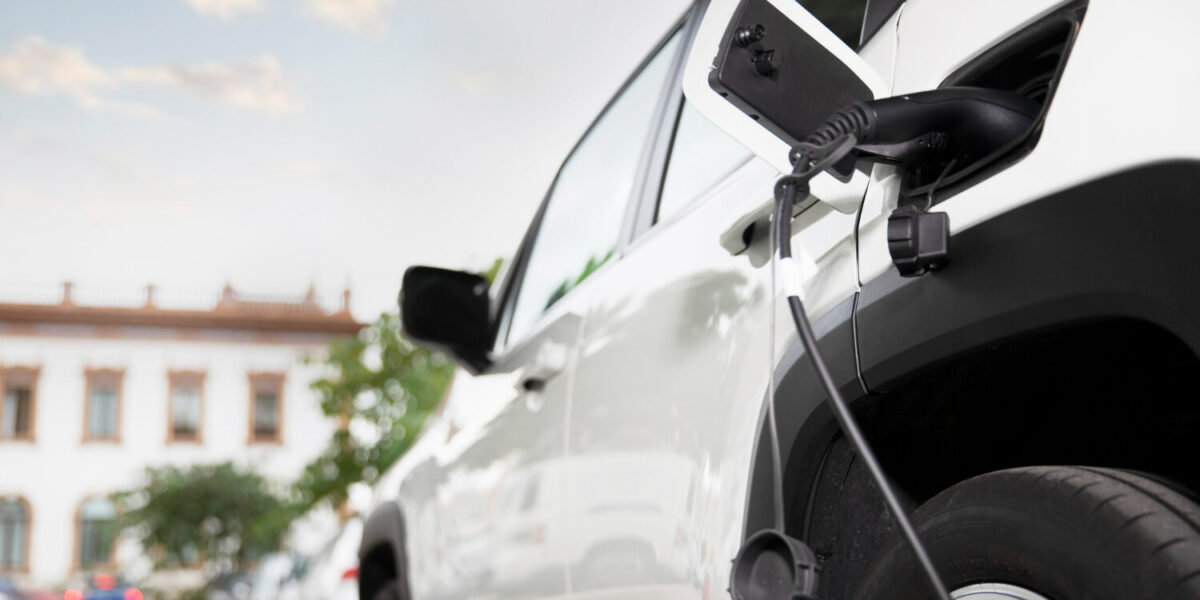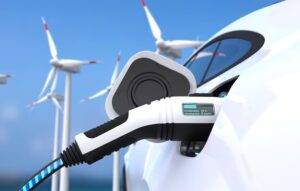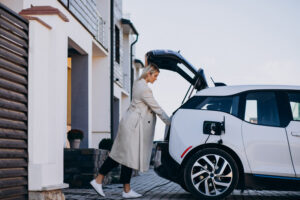A growing awareness of environmental responsibility and the pursuit of sustainable solutions are driving a transformative shift in the automotive industry. In this dynamic landscape, hybrid cars emerge as a powerful testament to innovation and progress. Combining the efficiency of electric motors with the reliability of gasoline engines, these vehicles offer a compelling proposition for drivers seeking a balance between performance and environmental impact.
Introduction to Hybrid Cars
Hybrid cars are vehicles that utilise two or more distinct power sources to move the vehicle. In most cases, this involves combining a traditional internal combustion engine with an electric motor. Hybrid cars are crucial in the transition towards more sustainable transportation options. They offer a balance between the convenience of traditional cars and the environmental benefits of electric vehicles.
History of Hybrid Cars
The idea of hybrid vehicles dates back to the late 19th century, and Ferdinand Porsche created the first hybrid car in 1899. Hybrid technology has evolved significantly over the years, with advancements in battery technology and electric motor efficiency driving the development of modern hybrid cars.
Types of Hybrid Cars
Hybrid cars offer a compelling blend of fuel efficiency and gasoline power, but deciding on the right one can be daunting. With various technologies and options available, understanding the different types of hybrid cars is crucial.
- Mild hybrids: Mild hybrids are vehicles that primarily rely on their combustion engine, with the electric motor providing assistance during acceleration and deceleration.
- Full hybrids: Full hybrids can operate using either the combustion engine, the electric motor, or a combination of both, depending on driving conditions.
- Plug-in hybrids: Plug-in hybrids can be charged using an external power source, allowing them to operate solely on electric power for short distances.
How Hybrid Cars Work
Hybrid cars have revolutionised transportation by merging the power of gasoline engines with electric motors, offering improved fuel efficiency and reduced emissions.
- Dual power sources: Hybrid cars use both a combustion engine and an electric motor to power the vehicle, with the onboard computer determining the optimal power source based on driving conditions.
- Regenerative braking: Hybrid cars use regenerative braking to capture and store energy normally lost during braking, which is then used to recharge the battery.
- Electric motor assistance: The electric motor in hybrid cars can provide additional power during acceleration, reducing the strain on the combustion engine.
Popular Hybrid Cars in New Zealand
New Zealand’s landscape is diverse, demanding cars that can handle both urban commutes and scenic coastal drives. Hybrid cars have become increasingly popular, offering the perfect blend of fuel efficiency and performance for Kiwi drivers. But with so many options on the market, choosing the right one can be overwhelming.
- Toyota Prius: The Toyota Prius is one of the most popular hybrid cars in New Zealand, known for its fuel efficiency and reliability. One of its products, the Toyota Aqua, is regarded as a fuel-efficient car due to its hybrid powertrain.
- Honda Insight: The Honda Insight is another popular hybrid car, offering a comfortable ride and impressive fuel economy.
- Hyundai Ioniq: The Hyundai Ioniq is a versatile hybrid car that offers a range of features and options to suit different drivers’ needs.
Benefits of Hybrid Cars
In a world that cares about the environment, hybrid cars have become a beacon of hope, providing an appealing option to traditional cars that run on petrol. In addition to being eco-friendly, these new tools have many other benefits that are good for both you and the environment. Let’s look deeper and find the secret reasons why hybrid cars are a good buy:
Fuel Efficiency: A Driving Force
One of the most significant advantages of hybrid cars lies in their exceptional fuel efficiency. By seamlessly switching between electric and gasoline power depending on driving conditions, hybrids achieve significantly lower fuel consumption compared to traditional gasoline-powered vehicles. This translates into direct benefits for drivers, such as:
- Reduced fuel costs: Filling your tank less frequently translates to significant financial savings over time, especially with rising fuel prices. These innovative cars combine a petrol engine with an electric motor, resulting in reduced emissions and improved fuel efficiency.
- Increased range: The combined powertrain allows for longer driving distances between refills, enhancing convenience and reducing range anxiety.
Environmental Benefits: A Breath of Fresh Air
Beyond fuel efficiency, hybrid cars play a crucial role in reducing greenhouse gas emissions and mitigating the impact of transportation on climate change. Here’s how:
- Lower CO2 emissions: By relying on electric power for part of the journey, hybrids release significantly less carbon dioxide than gasoline cars, contributing to cleaner air and a healthier environment.
- Reduced tailpipe emissions: Hybrids emit fewer harmful pollutants like nitrogen oxides and particulate matter, improving air quality and public health.
Beyond the Green: A Well-Rounded Experience
The benefits of hybrid cars extend beyond their environmental credentials. These vehicles offer a range of advantages that enhance the driving experience:
- Smooth and quiet operation: The seamless transition between electric and gasoline power creates a smooth and quiet driving experience, reducing noise pollution and enhancing comfort.
- Regenerative braking: Hybrids capture energy wasted during braking and convert it back into electricity, further improving efficiency and extending range.
- Tax and incentive benefits: Many governments offer tax breaks and incentives for purchasing hybrid cars, making them even more attractive to environmentally conscious consumers.
Exploring the Hybrid Landscape
The New Zealand car market boasts a diverse range of hybrid options to cater to various needs and budgets. From the ever-popular Toyota Prius and Corolla Hybrid to the stylish Kia Niro and the spacious Mitsubishi Outlander PHEV, there’s a hybrid car waiting to match your driving style and preferences.
Finding the Perfect Hybrid for You
- Consider your driving habits: If you primarily drive in urban areas with frequent stop-and-go traffic, a hybrid can maximise its efficiency potential.
- Think about your budget: Hybrids typically have a higher initial cost than gasoline cars, but fuel savings and government incentives can offset this difference over time.
- Prioritise your needs: Choose a hybrid that offers the features and size you require, whether it’s a compact hatchback for city commutes or a spacious SUV for family adventures.
The Road Ahead: A Sustainable Journey
As the automotive industry continues to evolve, hybrid cars are poised to play a pivotal role in shaping a more sustainable future. By embracing these innovative vehicles, we can collectively reduce our environmental impact and pave the way for a cleaner, greener world. Are you ready to join the hybrid revolution and drive into the future?
So, if you’re ready to go on a ride but still looking for a new vehicle, we have different car sales ready for you. Browse through our different models of MG electric cars to find your next dream car. If you’re seeking more expert tips and ideas, feel free to flick us a message talk with one of our experts today!



